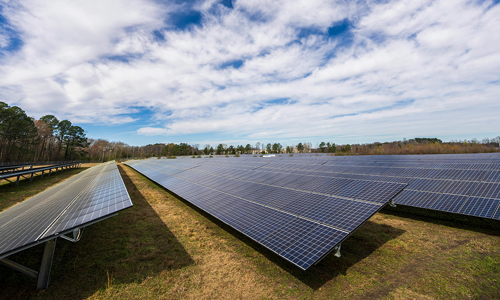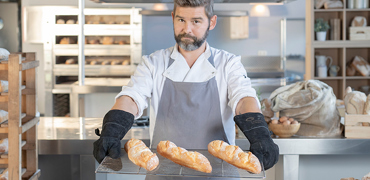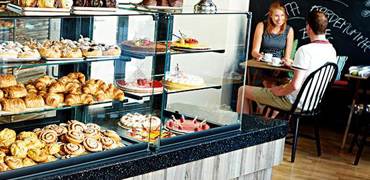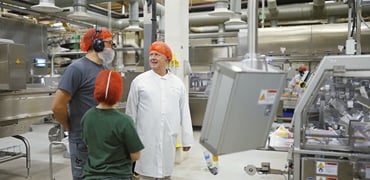Heat recovery and solar panels headline Lantmännen Unibake’s climate actions in Romania

Lantmännen Unibake Romania is working hard to reduce greenhouse gas emissions at the bakery. They have already launched heat recovery and solar panel projects, and they plan to switch to electrical ovens in the future.
 In 2016, Lantmännen Unibake acquired a new bakery in Romania. The bakery is planned to be one of the biggest players in the local bread market. Apart from its status as a flagship bakery in the region, the facility also has a green profile and stands out as one of Lantmännen Unibake’s most advanced bakeries.
In 2016, Lantmännen Unibake acquired a new bakery in Romania. The bakery is planned to be one of the biggest players in the local bread market. Apart from its status as a flagship bakery in the region, the facility also has a green profile and stands out as one of Lantmännen Unibake’s most advanced bakeries.
Originally, the bakery in Bucharest had a total footprint of 25,000 square meters. As part of a reconstruction plan, approximately two thirds of the old facility have been demolished. The remaining third still stands and has a production line for fast-food. A new building is under construction, and when that part of the bakery is finished, it will feature three new production lines – two for baking bread and one for baking fast-food. The entire bakery will have a total footprint of 30,000 square meters.
Sustainable dough proofing
Since 2021, Lantmännen Unibake Romania has launched energy and climate projects at the existing facility, says Operations Director, Darius Tirla.
“We have installed a heat recovery system on the chimney for our existing production line. We use water to recover the heat from the chimney, and we use this heated water for heating the proofing cabinet before the dough goes in the oven. Before, we had to use electricity to heat the proofer.”
A dough proofer is a warming chamber that encourages fermentation by yeast through warm temperatures and controlled humidity.
“The heat recovery project for dough proofing has reduced our electricity consumption with roughly 10%. On top of that, we also use part of the generated energy to heat the building in the winter. Before, we had two boilers running on gas for heating the building but today we only use one boiler, which means that we have reduced our gas consumption by 20%,” says Darius Tirla.
Solar panels on the roof
Lantmännen Unibake Romania has also installed solar panels on the roof of both the existing and new building. On a yearly basis the installed solar panels cover 12% of the energy consumption for the current business size. But in the summer when the sun is shining during daytime, Darius Tirla says, it’s possible to harvest up to 60-70% for their existing fast-food line.
“We are preparing for the future, so when we are up and running with the new bread lines in the new building, we have installed ovens that can easily be switched from gas to electricity.
In theory, some of that energy could come from solar panels,” Darius Tirla says and adds that they plan to add more solar panels on the compound.
Running on 100% green electricity
The bakery in Bucharest is running on 100% green electricity. The energy, they don’t produce themselves from solar panels or heat recovery, they buy as green certificates in the energy market. The long-term agreements with renewable energy producers to purchase green energy help Lantmännen Unibake Romania reduce its carbon footprint but also provide a stable and predictable source of energy at a competitive price.
On a company group level, Lantmännen Unibake has committed to different SBTi targets. One of them is that by 2030, Lantmännen Unibake must reduce absolute scope 1 and 2 GHG emissions 50% from a 2019 base year. Scope 1 emissions are direct emissions owned or controlled by a company, and Scope 2 emissions are indirect emissions associated with the purchase of electricity, steam, heat, or cooling.
The numbers show that the needle is moving in the right direction.
In 2019, 42% of Lantmännen Unibake’s energy came from renewable sources. In 2023, it was 51%.
And in 2019, the percentage of renewable electricity was 88%; in 2023, it was 96% – primarily from purchasing green certificates.
See more projects.





















